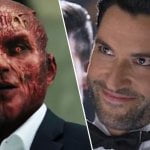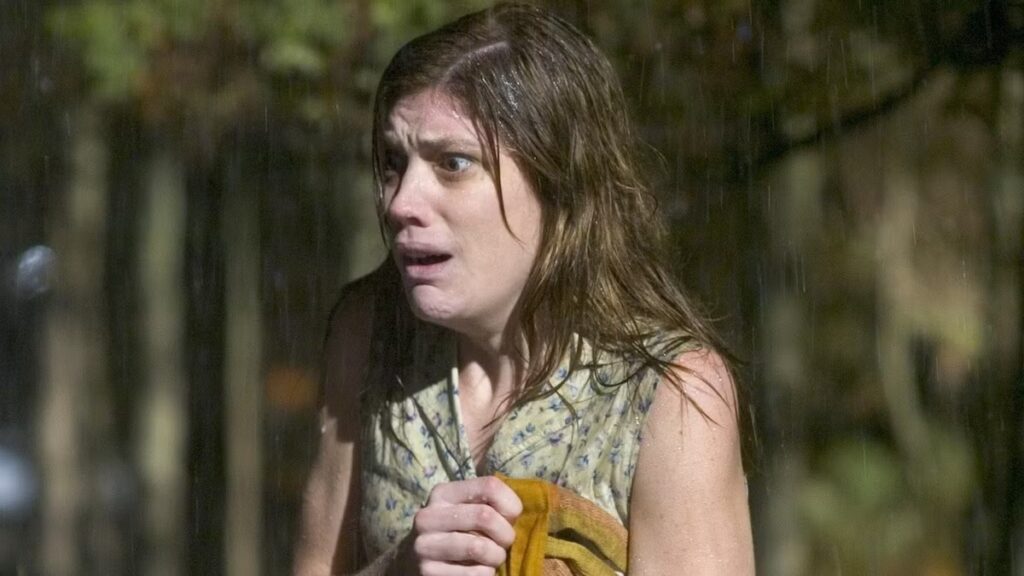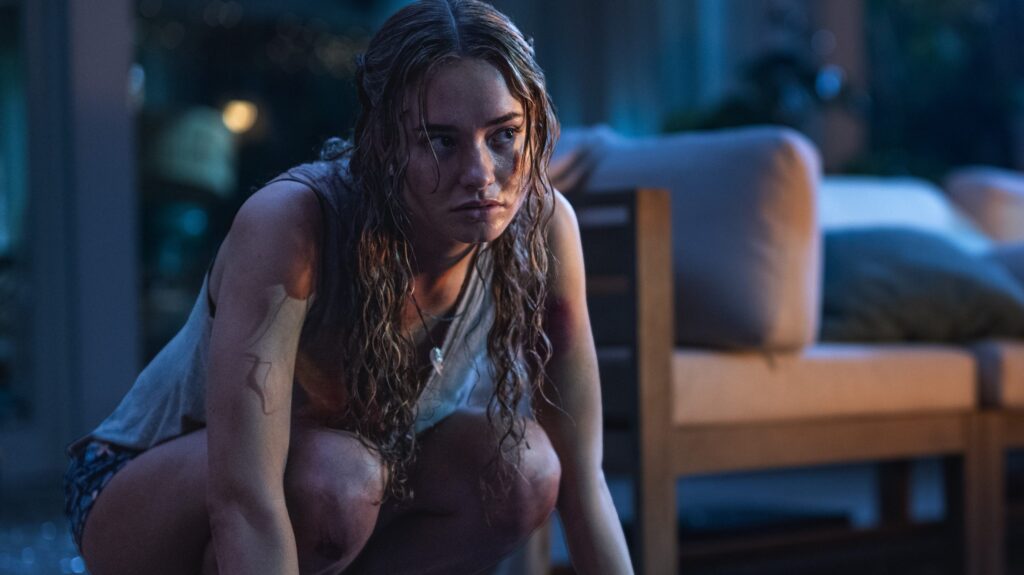Forget everything you think you know about demonic possession. Toss out the spinning heads and the pea soup. The Exorcism of Emily Rose isn’t here for cheap scares; it’s here for your soul. It grabs you by the collar, drags you into a courtroom, and demands you answer a question that has haunted humanity for centuries: Where does faith end and fact begin? This isn’t just another horror movie based on a true story; it’s a cinematic exorcism of our collective skepticism, a brutal, intelligent, and relentlessly engaging film that uses the legal system as a battleground for the divine and the damned.
We’re diving deep into the dark heart of this modern classic. We’ll dissect the harrowing real-life case that inspired it, break down the genius performances that make it feel terrifyingly real, and explore why, nearly two decades later, its central question remains so brutally unresolved. This essay is more than a movie review; this is an autopsy of a belief system.
The Ghoulish Blueprint: How a German Girl’s Death Became Emily Rose
So, is The Exorcism of Emily Rose based on a true story? The answer is a resounding and disturbing yes. The film serves as a fictionalized echo of the tragic case of Anneliese Michel, a young German woman who died in 1976 after a series of exorcisms. The parallels are stark and chilling.
Anneliese, like Emily, was a devout Catholic. She began experiencing what was initially diagnosed as grand mal epilepsy and profound depression. But when medical treatments failed, she and her family became convinced she was possessed by demons. With permission from their bishop, two priests performed nearly 70 exorcisms on her over ten months. The recordings of these sessions, which still exist, detail a voice not her own, self-harm, and a refusal to eat. By the time she died, she was severely malnourished and dehydrated. Her weight? Her weight was a mere 68 pounds.
The subsequent trial wasn’t for murder but for negligent homicide. The priests and Anneliese’s parents were found guilty. The court


Genre-Bending Terror: Why a Courtroom is the Scariest Place on Earth
What makes The Exorcism of Emily Rose stand out in a sea of possession flicks? Director Scott Derrickson made a brilliant, counterintuitive choice. He understood that the true horror of this story wasn’t just in the contorted body of a possessed girl but in the quiet, sterile confines of a courtroom. This is a courtroom horror movie first and a traditional shock-fest second.
By structuring the film around Father Moore’s trial, Derrickson forces the audience to become the jury. We are not passive observers of supernatural events; we are active participants in a debate over their very existence. The film’s genius lies in its refusal to provide easy answers. The prosecution presents a compelling case for psychotic epileptic disorder, a tangible medical condition. The defense presents equally compelling, terrifying evidence of a demonic infestation. The movie expertly weaponizes ambiguity, making you question every shudder, every nightmare, and every piece of testimony.
This faith vs. science battle is the engine of the film’s suspense. It’s a high-stakes intellectual puzzle where the prize is the very definition of truth. The horror isn’t just in what happened to Emily; it’s in the terrifying possibility that our modern, rational world is utterly unequipped to handle the ancient, supernatural evils it dismisses.
Witness the chilling official trailer that perfectly captures the film’s unique courtroom-horror blend.
How The Exorcism of Emily Rose Cast Brought the Story to Life
A film with such conceptual ambition depends heavily on its cast. The performances in The Exorcism of Emily Rose, grounded in raw, human suffering, are nothing short of phenomenal.
Jennifer Carpenter as Emily Rose

Let’s be clear: Carpenter delivers one of the most physically demanding and convincing performances in horror history. Her portrayal of possession isn’t a cartoon; it’s a brutal, body-breaking transformation. She contorts her limbs into impossible angles, her voice shifts between guttural rasps and piercing shrieks, and her face becomes a canvas of pure torment. The infamous barn scene, where her body arches and cracks, is a testament to her incredible commitment. She doesn’t just play possessed; she embodies a violent war for a human soul.
Tom Wilkinson as Father Moore

Wilkinson brings a towering, weary gravitas to the role of the accused priest. His Father Moore character is not a fanatic, but a man burdened by his faith and the horrific reality he believes he witnessed. Wilkinson’s performance is all in the eyes—a mixture of unshakable conviction, profound sadness, and resolute integrity. He makes you believe that this man truly saw the devil, and that his refusal to back down is the ultimate act of courage.
Laura Linney as Erin Bruner

Linney is the audience’s anchor, the skeptical lawyer navigating a world she doesn’t understand. She masterfully portrays Erin Bruner as a defense lawyer, systematically dismantling her rational worldview. The film’s emotional core lies in her arc from ambitious attorney to a believer in the “dark forces” surrounding the case. Opposite her, Campbell Scott is brilliantly smarmy as the church-going prosecutor Ethan Thomas, a man who must argue against the very beliefs he supposedly holds, creating a fascinating layer of hypocrisy.
The Church’s Dirty Little Secret: Exorcism in the Modern Age
The film scrutinizes not only the priest’s trial but also the entire Catholic Church’s position on exorcism. This is where the movie’s aggressive intelligence truly shines. The film portrays the archdiocese as politically cautious, prioritizing avoiding scandal over pursuing spiritual truth. They authorize the exorcism but abandon Father Moore the moment it becomes a legal liability.
This reflects a real-world tension within the Church. While the Vatican officially recognizes the rite of exorcism and even runs courses for priests, it remains deeply skeptical of most claimed possessions, often attributing them to mental illness. The film captures this institutional ambivalence perfectly. It’s a powerful commentary on how ancient faith struggles to survive in a litigious, modern world, raising profound questions about religious ethics and the very institution meant to wage this cosmic war.
Beyond the Screen: The Cultural Exorcism That Continues
The legacy of The Exorcism of Emily Rose is undeniable. It didn’t just scare audiences; it sparked a cultural conversation. Fan forums and review sites are still flooded with debates over whether Emily Rose’s possession was real or a mental illness. The film’s “based on a true story” tagline did more than any marketing campaign could; it forced viewers to confront the terrifying possibility that the events on screen were not entirely fiction.
This lingering doubt is the film’s greatest weapon and its most significant cultural contribution. It paved the way for a new subgenre of religious horror courtroom drama, proving that the most terrifying battles aren’t fought with holy water and crucifixes, but with cross-examinations and evidentiary rulings.
It mirrors our society, posing the question, “What are we willing to believe in an age of science?” And what happens when belief itself is put on trial? The story of Emily Rose, both the real one and the fictional one, is a permanent scar on the face of modern horror. It’s a grim reminder that the most terrifying monsters aren’t the ones under the bed, but the ones we can’t prove exist—the ones that force us to question everything we hold to be true.
